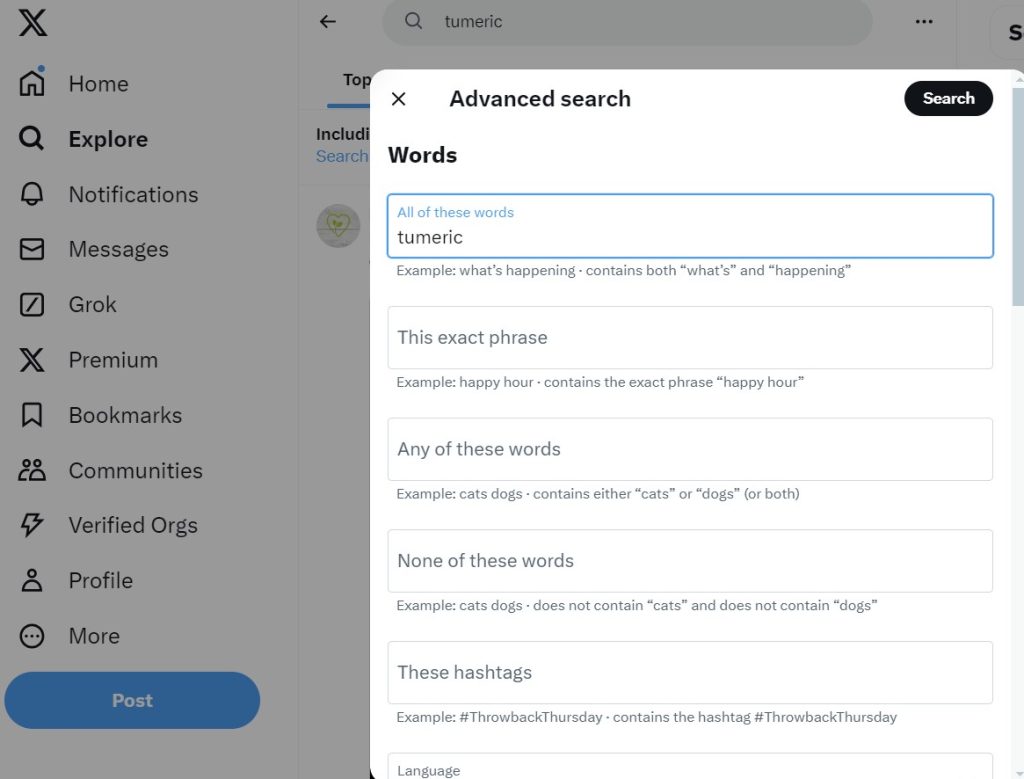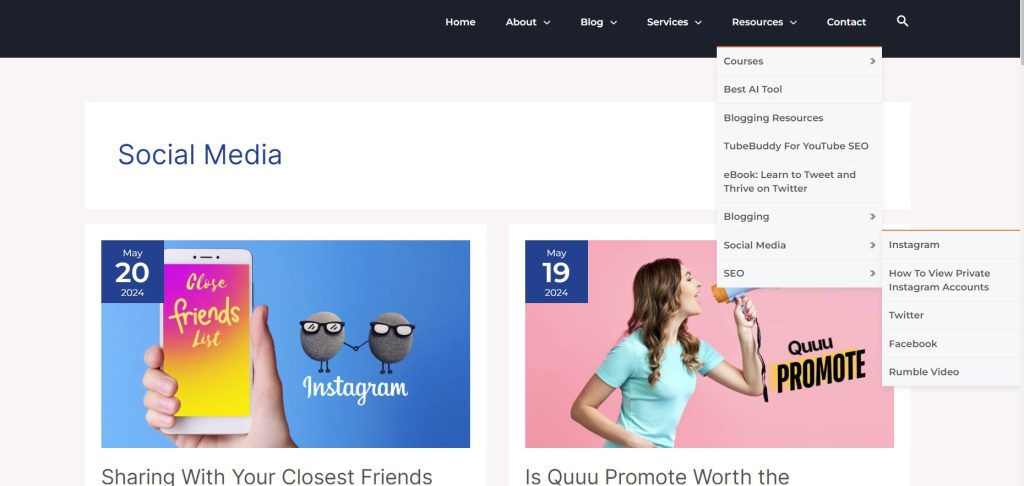With SEO becoming more competitive than ever it’s important to do creative SEO keyword research. The days of ranking for a common keyword are almost non-existent.
The title says it all. Being creative with keyword research means:
- Looking in places few bother to look;
- Arrange your content in such a way so that each keyword ends where the other begins, and together they form the sequence called “total knowledge” about “X”.
- Internal link your blog posts for greater user experience and SEO juice.

It sounds complicated, but it’s dead simple, and here’s exactly what you need to do and not make mistakes along the way.
Table of Contents
Rethinking Creative Keywords:
People Have Questions and Want Answers
Within this new approach to unique keyword research, every keyword is a question; because every question is a problem.
People have problems and they need answers and it’s up to you to deliver them.
First I will show you 4 different ways of finding awesome questions people ask, and then I will give you a way to make a solid attempt at ranking for everything.
Creative Keyword Research Tools
#1- Use Quora To Find Problems and SEO Keyword Research
Quora is a goldmine for question extraction. It’s the one place, perhaps in the entirety of the internet, where people gather specifically to ask questions and to answer them.
And as a bonus, it has an excellent search function for you, the marketer, to dig through.
Here is what happens when I search for our target keyword (Turmeric)

Dozens of keywords, dozens of problems, and dozens of questions for you to give answers to.
Take all of those that make sense and put them into a Google Spreadsheet.
Here’s a template you can use.
Now let’s go hit up X Twitter for more SEO keyword research.
#2- X Twitter For Creative SEO Keyword Research
Open up the X advanced search and search for Turmeric. There is plenty of settings to tinker with, but the ones you really need are:
- Include the word “Turmeric”
- Includes this hashtag “#turmeric”
Now click “search” and see what comes up.

Scroll down the search results and record everything that looks like a problem/question, or anything that could be formulated into one.
Finally, there’s…
#3 Answer The Public For Creative Keyword Research
This tool is built by marketers for marketing and of course, is pure value for unique keyword research.
Enter your keyword and find every question you can about Turmeric.

Then dump them all in your spreadsheet.
Note: you will have to weed out duplicates and very similar questions. But you still should be left with at least 50 unique keyword questions.
Remember, Turmeric is a very small niche. If you’re in the internet marketing space you could easily end up with 500 questions.
Now, before I show you how to build out your content we need to add 2 more fields, to our Google Sheets. Those fields are “Topic” and “Queries”
a) Topic
This is the mother topic or niche. For us here it will all be Turmeric but when you’re doing keyword research for multi-niche sites you will have to differentiate between niches.
Make sure you record them correctly!
b) Queries
The query is what we SEOs call a keyword. That is the phrase we’ll be targeting with our content. So we’ll be answering questions people have but our content will be optimized around queries.
Got it?

#4 – The Right Blogger AI Tool
You’re a blogger, and you know SEO is crucial for driving traffic to your site. But finding the right keywords can be a grind. That’s where an AI tool like Right Blogger Keyword Research tool comes in handy.
It analyzes data from millions of blogs to suggest creative, high-volume keywords you might never have thought of. No more staring at a blank screen, wondering what to write about next.
The Right Blogger Suggest Tool serves up fresh ideas tailored to your niche, so you can create content your audience craves while optimizing for search engines. Kiss writer’s block goodbye and let the AI do the heavy lifting.
#5. – Use Reddit For Keyword Search
How To Use Reddit For Keyword Search
Reddit can be a goldmine for keyword ideas if you know where to look. Start by searching for topics in subreddits related to your niche—think forums like r/Blogging or r/SmallBusiness for content marketing.
Pay attention to thread titles and the exact phrases real users use in questions or comments. These are the keywords your audience is actually searching for.
Copy standout questions, problems, and product mentions into a list. Tools like Keyworddit (https://keyworddit.com/) can help pull popular terms directly from subreddit discussions.
Lastly, use these findings to shape your blog post titles, FAQs, and even social media content. If you want to tap directly into trends, sort posts by “top” or “hot” to spot recurring topics.
Quick Steps for Reddit Keyword Research:
- Pick relevant subreddits for your industry.
- Search for your main topic or phrase.
- Note the common words and questions.
- Use Keyworddit to automate some of the process.
- Look at top posts for recurring themes and active discussions.
- Build your content plan around what you find.
Reddit shows what people are actually talking about right now—no guesswork, just clear signals straight from your audience.
Give it a try and see what new content ideas pop up for your next campaign.
How To Organize Your Site’s Content For Maximum Ranking Benefit With SEO Keyword Research
Google really likes when you’re authority about X and it’s insanely hard to rank on just authority alone. In fact, I’d say it’s nearly impossible to rank in Google without established site-wide topical relevance.
That is why you often see huge general authority sites like Entrepreneur, Fox, and Inc nearly always ranking in the top 10, but almost never in the first 3 positions.
Their massive authority gets them to the first page, but their lack of domain relevance prevents them from conquering the top of the SERPs.
So, to increase your site’s relevance with respect to a certain topic and thus lessen the hurdle of not having enough authority, I propose you use a topic+cluster model to build out your site.
Your topics are your main theme, in our case that is Turmeric, and your clusters are supporting articles. Sort of like planets orbiting the Sun.
It looks something like this:

Master Guide
So your master guide will be there to talk about Turmeric in general, while your supporting articles will be there to provide in-depth coverage of every aspect (question) people have around the topic.
And for the SEO side of this, all these articles will be cross-linked with keyword-rich internal links. This will drive your site’s relevancy meter through the roof and Google will know you’re a true authority on the subject.
Here are 3 good examples:
#1- Guide On Blogging
The blog on adamenfroy.com nails it with its header index. It serves as a simple yet effective way to explore different categories and topics.
You won’t get lost in a sea of posts or struggle to find what you need. The clean design makes it easy to jump straight to the sections you care about, driving traffic to relevant content.
It’s a user-friendly approach that ensures visitors can quickly discover valuable info without wasting time.
#2- Blogging Training Category
“Blogging Aid” is a one-stop resource covering all aspects of blogging. It provides practical tips, tutorials, and guides for beginners and seasoned bloggers alike. The site covers diverse topics, from content creation to blog monetization and growth strategies.
With its comprehensive approach and user-friendly layout, it’s an invaluable asset for anyone looking to build a successful blog or enhance their existing one.
I’m sure they use some creative SEO keyword research to come up with their different blogging topics.
#3- My Instagram Tips
My blog’s most popular posts are about Instagram. I have many of these articles interlinked for readers to find the topics they want fast about IG.
You can see even in the menu area I have Instagram first from the social media category. I may move those up in the resources tab for greater visibility.

When I need fresh keyword ideas I use the above tools to for unique SEO keyword research related to Instagram. They are not too hard to find with so many changes taking place on that social media platform.
Conclusion: SEO Keyword Research
It’s not that hard to create a full-blown SEO strategy just by answering questions, solving problems, and delivering value.
And being creative with keyword research means finding opportunities where others see difficulties. Be sure to research for AI queries as well.
FAQ: Creative SEO Keyword Research – How To Find New Topics
Creative SEO keyword research involves finding unique and effective keywords that aren’t overly competitive. It helps you stand out and drive more traffic to your site.
Keyword research helps you understand what your audience is searching for. It guides your content creation so you can attract more visitors and improve your search engine rankings.
Begin with a brainstorming session. Think about your audience and what they might search for. Use tools like Google Keyword Planner or Ahrefs to find related keywords.
Some popular tools include Google Keyword Planner, Ahrefs, SEMrush, The RIght Blogger and Ubersuggest. These can help you find keywords, analyze competitors, and track your rankings.
Look for long-tail keywords. These are longer, more specific phrases that aren’t as competitive but can be very targeted. Use tools to find these hidden gems.
Long-tail keywords are longer, more specific keyword phrases. They usually have lower search volume but higher conversion rates because they target more specific queries.
Do keyword research regularly. The SEO landscape changes, and new trends emerge. Regular research ensures you stay on top of new opportunities.
Yes, using questions as keywords can be very effective. People often type questions into search engines and AI overviews, and answering these questions can drive traffic to your site.
Understanding user intent is crucial. It helps you choose keywords that match what people are looking for, whether it’s information, a product, or a service.
Use keyword tools to find related keywords and questions. Check forums, social media, and comment sections for common questions and topics in your niche.
Focus on a primary keyword but include related keywords and phrases. This helps you rank for a wider range of search queries and improves your content’s reach.
Stay updated with industry trends and periodically revisit your keyword strategy. Use new keyword research tools and techniques to find fresh keywords and topics.
- BlueSky vs Twitter (X): Similarities & Shared Features Explained - February 26, 2026
- How To Join X (Twitter) Chats And Inspire Others Along The Chat - February 26, 2026
- Mobile App Tracking Tools: Track Your Kids & Money Like a Pro - February 24, 2026





Hi Nikola & Lisa,
Your post is epic, and I love it. I would instead call it an ultimate tutorial guide since it addresses and explains the subject matter in simple terms. Also, the keyword tools you mentioned are fantastic. For example, some of my top-performing blogs are questions from Quora and Twitter. However, the way to utilize these tools is what many find challenging. You did well breaking it down for easy understanding. I will be referencing this post soon.
Thanks Moss. Glad you like it. Twitter and Quora are perfect repositories of problems just itching to be solved…
what intrigues me that though I have the same ideas but am not very clear about what the topic of the post should be. I mean you can have related keyword ideas as subtopics, that fine, it just solves more questions your visitors/readers can have. But what need be the Heading/Title/Topic of your post? merely Turmeric? or combining two ideas to make it long tail? Turmeric as a seed term with high search volume would find difficult to rank high and early. Right?
Hi Pranav,
That is easy. Your main keyword to target will be the querie. And you can dress that querie in a question.
For example, if your querie is “buy organic Turmeric” then your blog post title can be “Where can I buy organic turmeric online”?
That way you’re targeting a querie but you’re answering a question and your blog post will have a definitive purpose.
So the SEO purpose for you is to target a phrase and get rankings, but value for the users is that you’re solving their problems.
So everybody wins!
Bottom line: find the querie and you know what you have to do.
Thanks for the reply..I need to clarify myself a bit. What can be the topic/heading of the post if i am using several keyword ideas/Queries in the same blog post? Like there are some topics let’s say a personality profile, so his background, early life etc. On such a topic one query will not provide enough content so we can add another query or more to give a fulfilling perspective to users as well to search engines that find the content authoritative. or we go with just one query on which content can be generated and ignore others from including in our content?
Hi Pranav, your main query should be one that naturally encompasses others. And if you think there are several candidates, then you pick one that has higher traffic numbers but weaker competition.
So, for each article have one querie you’re targeting (you base your on-page SEO on that keyword) and a list of related keywords to include naturally throughout the content.
Your example of personalty profile is good.
That is main keyword while background, early life… are subtopics; and within the article subheadings.
Hope this helps!
Thanks..You have been a prompt help while being patient to my “query” in solving my problem that is my questions! Thanks
No problem Pranav Glad to have been of help to you.
Hi Nikola,
I really enjoyed reading your article. It is full of information and great content. The ideas you have provided for creative keyword research is so new and different. Applying these techniques will surely help me know more about my relevant keywords. I have also read more of your blogs. They are worth reading. Great Content!
Thank you!
Have a great day!
I have never thought of using Quora for blog topics that’s a great idea! Thanks
Hi Jessica, welcome to Inspire To Thrive. Oh yes, you can learn a lot over there on Quora. Thanks for coming by and have a great day.
Hello Nikola,
The keyword plays a great role in determining your search ranking for a particular word or phrase. Researching about keyword is very important before crafting a blog post. You have shared some great tips here for a creative keyword research.
Regards,
Vishwajeet Kumar
Thanks a tonne Vishwajeet! Glad it helped you and that you enjoyed reading it.
Hey Nikola,
In my opinion keyword research is about getting to know the language of your potential visitors and using this knowledge to optimize your content.
We know very well keyword research is one of the most important SEO tasks and a great way to reach more people with your content.
Keyword research is considered as the first step of search engine optimization of any website.
When used correctly it provides a road map for both the design and execution of building websites and developing content.
Eventually, thanks for exploring your wonderful experience with us.
With best wishes,
Amar Kumar
Hi Amar,
thank you for your valuable comment. Yeah, keyword research is the most important SEO task because all SEO start when people search for something in Google.
Hi Nikola,
Keyword research is the backbone of any SEO strategy. Without finding the targeted keyword you cannot reach your target audience. Your keyword research become creative when you just do it for the sake of ranking but try to understand the user internet and potential of conversion.
Glad you have shared these tips!
Exactly so Gaurav.
Glad to have your input here. Broaden your thinking and get keywords that bring in traffic and profits,
Nice!
This is an excellent post, Nikola! Too often we ignore these tools like quora and twitter but they found to be a great resource for finding keywords.
Thanks for mentioning my posts too! I really like the topic cluster model I learned from another SEO strategist!
Arfa
Thanks Arfa,
Quora and Twitter are great because they happen in real time (especially Twitter) and are pretty much precursors to later Google search. By observing Twitter closely you can find a “hot” topic that’s still not hot on Google. Capitalize on that!
Hey Nikola Roza ,
Great post with effective tips for doing keyword research. Ceative keyword research really means a lot and is not an easy task, whereas it require knowledge and ideas for doing it. Quora and twitter are great platforms and helpful for doing a good keyword research. Quora is an amazing question & answer platform that allows several users and readers to get solution for the queries that they are looking for.
Answer the public is also a great tool for keyword research. Your suggested tips to organize the site content to get maximum ranking benefit are also great. As this post will helpful for several users especially for those who are looking for doing creative keyword research.
Thanks for sharing such a helpful content.
Thanks Aadarsh,
yeah, good keyword research, aligned with you blog’s theme and decent content will get you really far. For great results you will have to do SEO and for that Lisa has another post just for you: http://inspiretothrive.com/simple-seo-checklist/